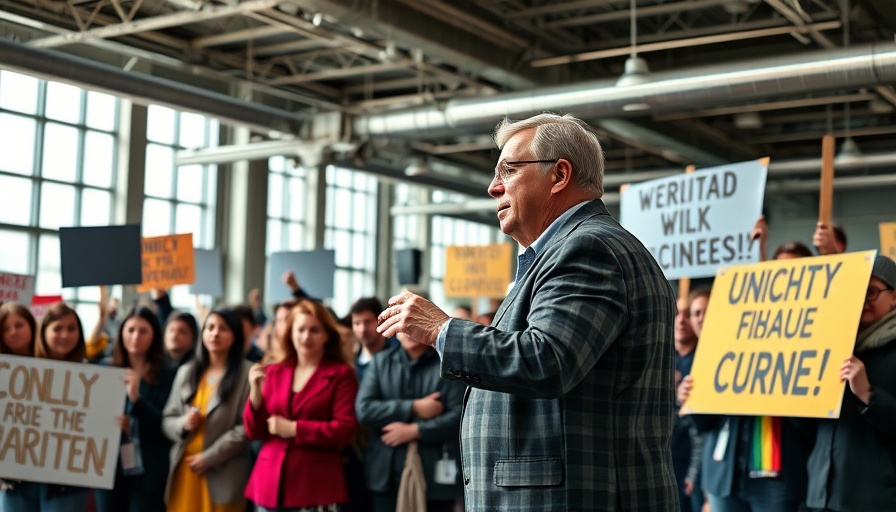
Governments Converge on Just Transition Goals
A pivotal moment at the recent intersessional climate conference in Bonn marked a significant step forward in crafting a globally recognized framework for a just transition. With the backdrop of ongoing global conflicts and social inequalities, countries finally advanced a draft text aimed at addressing the urgent needs of workers and communities adversely affected by the transition from fossil fuels. This agreement is not merely bureaucratic jargon; it represents a potential turning point for achieving equitable sustainable development worldwide.
Understanding the Just Transition Concept
The notion of a 'just transition' encompasses more than simply moving away from fossil fuels; it is about ensuring that the shift to a more sustainable energy landscape is equitable. As the world grapples with climate change, the needs of vulnerable populations, particularly in the Global South, must be placed front and center. Insights from climate experts underline that without addressing issues of social justice, environmental policies might exacerbate existing inequalities.
The Importance of Preparing for COP30
As countries prepare for the upcoming COP30 conference in Belém, Brazil, the groundwork laid in Bonn has given civil society a ‘core issue to rally around.’ Activists stress the importance of including the just transition work programme in the Belém Action Mechanism, which Brazil champions to create more inclusive climate action frameworks. This initiative aims to enhance global cooperation by incorporating local and Indigenous perspectives, making it one of the more visionary approaches to climate diplomacy in recent years.
A Glimmer of Hope Amidst Global Crises
The Bonn discussions unfolded against the worrying backdrop of ongoing wars and inequality, leading climate activists to see this progress on the just transition text as a definitive ‘glimmer of hope.’ While the initial talks struggled to find common ground on pressing agenda items, the momentum gained through the just transition discussions could spark greater engagement and commitment from nations seeking to balance their climate actions with social responsibilities.
The Broader Context of Climate Negotiations
The Bonn conference not only served as a technical dialogue among nations but also highlighted the increasing role of civil society in shaping climate policies. With global stakeholders calling for stronger actions on debt and trade injustices, it is evident that climate negotiations must evolve to integrate these essential discussions that impact sustainable living. As Amiera Sawas of the Fossil Fuel Non-Proliferation Treaty Initiative articulated, there is a pressing need for synergistic approaches that harness learnings from different global contexts.
Future Implications for Sustainable Development
Looking ahead, the outcomes from Bonn will be critical in defining the shape of climate action in COP30. The agreement on the draft framework can pave the way for enhanced capacity-building and technology transfer, particularly addressing sustainable development in developing nations. With growing investment in renewable energy sources and sustainable practices, the commitment to a just transition, if fully realized, could substantially lower the global carbon footprint and promote responsible consumerism on a larger scale.
Taking Action for a Just Transition
The road to achieving a just transition is not without its challenges. Governments, businesses, and individuals must recognize their roles in supporting sustainable practices. From promoting eco-friendly technologies and investing in renewable energy sources to advocating for sustainable agriculture and community gardens, there are numerous ways to contribute to this critical cause. Staying engaged with climate initiatives through responsible consumption, supporting local economies, and empowering underserved communities can help turn this framework into action.
The ongoing climate conversation demands that eco-conscious readers become active participants in shaping sustainable futures. It’s imperative to stay informed, advocate for climate justice, and adopt sustainable lifestyles that contribute positively to environmental conservation.
 Add Row
Add Row  Add
Add 



Write A Comment